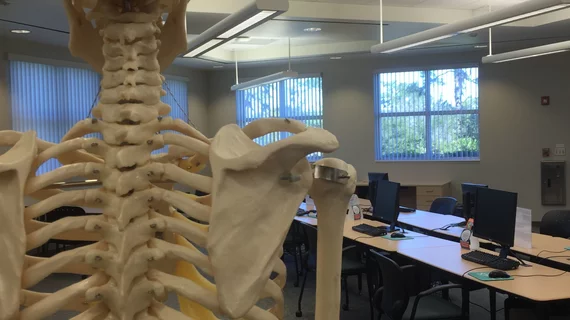Billionaire Mike Bloomberg puts up $250M to open healthcare high schools for training radiologic technologists
Billionaire Michael Bloomberg is donating $250 million toward opening specialized high schools for training radiologic technologists and other high-demand healthcare professions facing shortages.
The “first of its kind” initiative will initially target 10 urban and rural communities across the U.S. Public education systems and large hospital systems will partner to launch the new institutions, which will collectively serve almost 6,000 students once they reach full capacity.
Each location will offer robust academic programming, specialized healthcare classes, work-based learning at partner hospital systems, and a chance to earn necessary certification.
“By combining classroom learning with hands-on experience, these specialized healthcare high schools will prepare students for careers with opportunities for growth and advancement,” Bloomberg, founder of Bloomberg L.P. and former mayor of New York, said in a Jan. 17 announcement. “America needs more healthcare workers, and we need a stronger, larger middle-class—and this is a way to help accomplish both goals.”
Initial urban areas of focus will include Boston, Charlotte, N.C., Dallas, Durham, N.C., Houston, Nashville, Tenn., New York and Philadelphia. The initiative also will serve rural geographies such as Demopolis, Ala., and six locations in northeast Tennessee. Hospital system partners have committed to co-teaching classes and providing job opportunities for students who complete the program. Ninth and 10th grade students will participate in job-shadowing and simulation labs, while 11th graders will have access to paid internships and mentoring. Upon graduating, teens can enter jobs with partner hospital systems or choose to further advance their careers via post-secondary education.
The first schools are slated to open this year in Boston (via a partnership with Mass General Brigham), Charlotte (Atrium Health), Dallas (Baylor Scott & White), and Houston (Memorial Hermann). Others will follow through 2026. Along with rad techs, they’ll also train surgical technologists and respiratory therapists, among other titles.
This initiative comes as radiology providers face ongoing challenges hiring techs and other allied health professionals. Last year, the American Society of Radiologic Technologists reported that vacancy rates had hit record highs, including 18.1% among radiographers. Amid these challenges, hospitals are upping their recruitment game, with one rural provider doling out $20,000 sign-on bonuses for techs.
“As healthcare providers continue to face persistent labor challenges, it is crucial that we develop innovative partnerships to respond to the challenges of today and invest in the healthcare leaders of tomorrow,” Anne Klibanski, MD, president and CEO of Mass General, said in the announcement.

